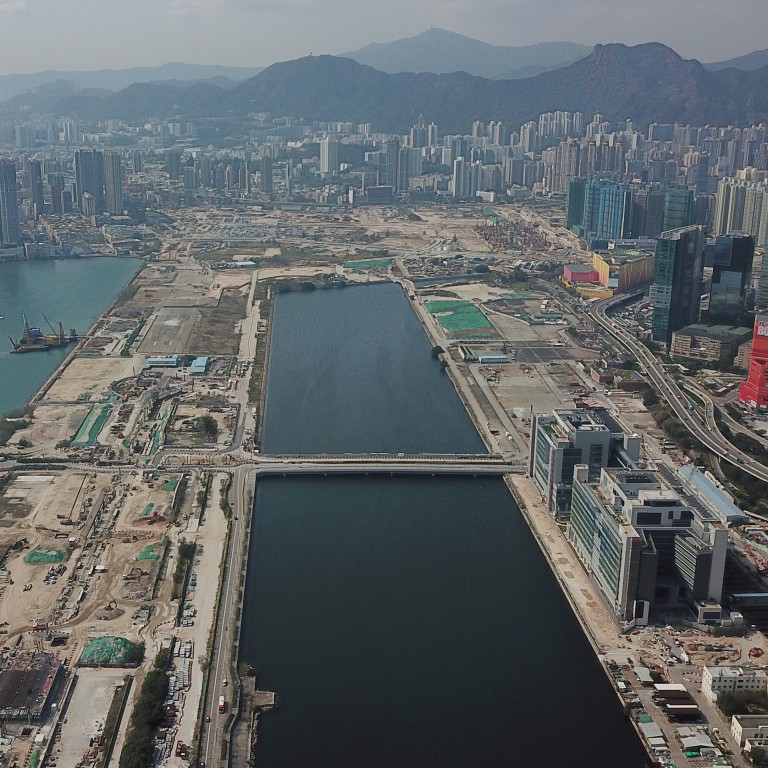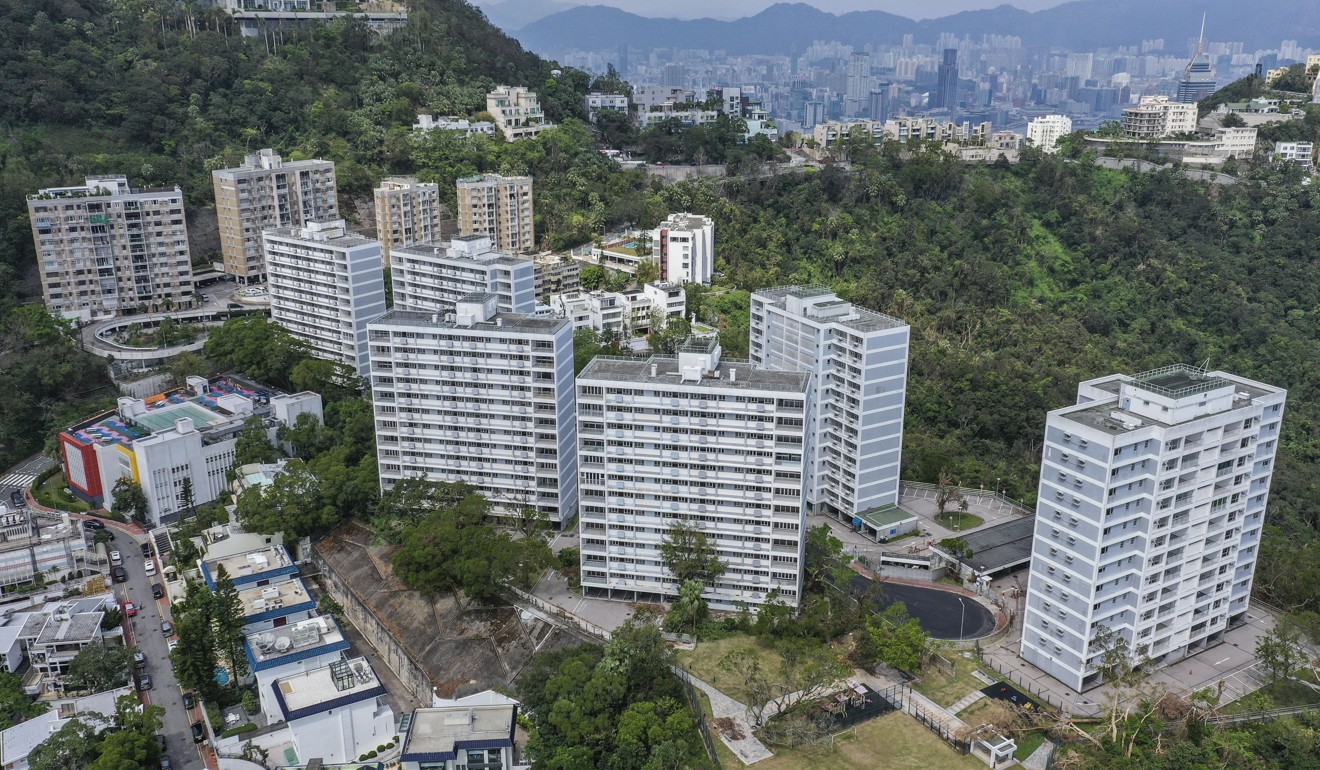
Falling land values indicate developers are pessimistic about Hong Kong property sector’s outlook
- Market observers say the uncertain economic outlook has made property developers more conservative in their land acquisitions as they look to ride out the downturn
Hong Kong’s property sector is a bit downbeat these days. Buyers certainly aren’t willing to pay high prices and developers have reined in their land acquisitions after shelling out record sums earlier in the year.
And there is good reason for that. There is no end in sight to the US-China trade war, the stock market is behaving erratically, and to cap it all, interest rates are on the rise.
But who’s more pessimistic of the two? It’s clearly the developers, say market observers.
Land values in Kai Tak, the site of the city’s former runway, have fallen 18.4 per cent after peaking in May, far sharper than the 6 per cent drop in Hong Kong’s secondary home prices, according to Centa-City Leading Index.
Hong Kong home prices fall 2.4 per cent in October, marking a third consecutive monthly drop at a quickening pace
A plot in Kai Tak sold in May for a record HK$25.16 billion (US$3.2 billion) or HK$17,776 per square feet. Last month, the first site on Kai Tak’s runway was sold to a consortium of four developers for HK$8.33 billion, or HK$14,502 per sq ft, down 18.4 per cent from May. Another site on the runway sold to Goldin Financial fetched HK$8.91 billion. Even though the price was slightly higher, at HK$15,498 per sq ft, it was still 12.8 per cent lower than the peak.

And in mid-October the tender for a major luxury residential parcel on Mansfield Road on The Peak, estimated to be worth more than HK$30 billion, had to be scrapped as the bids did not meet the reserve price.
In the nine-month period from April, 12 sites were sold through government tender for HK$56.5 billion, 38 per cent lower than the HK$90.68 billion from the sale of 15 plots during the same period in 2017.
Hong Kong scraps sale of The Peak land plot after bids failed to meet US$6.2 billion expected price
Developers become more conservative and rational when bidding for land amid economic uncertainty, said James Cheung, executive director at Centaline Surveyors.
“Obviously [land] prices [this year] were lower than last year’s,” said Cheung.
According to Lee Shu-kam, associate professor at Hong Kong Shue Yan University, the sharp decline in land prices indicates that developers are more pessimistic than homebuyers.
“When they anticipate a correction in home prices, they offer lower prices for land to reduce long-term risk,” Lee said.
Simon Lee, senior lecturer at Chinese University of Hong Kong, attributed developers’ caution partly to “higher funding cost amid a rising interest rate cycle”.
He said amid falling property values, developers were unlikely to bid for land aggressively as land value had not yet hit bottom.
Lucrative land sales that drive up property prices are a ‘de facto tax’ on homebuyers, Hong Kong government adviser says
Leo Cheung, corporate development director of valuations and property management at Pruden Group, said land prices at Kai Tak were unlikely to drop below HK$14,000 per sq ft given the amenities such as shopping centres that will be available there.
Centaline’s James Cheung said another reason for lower prices is because mainland developers have not been as keen on bidding for land after offering “exceptionally high” prices to “break into” the Hong Kong market.
Residential site in Tuen Mun receives just three bids in worst response to Hong Kong land sale since 2010
Mainland developers took up nearly half of the land tenders during the 2015 and 2016 financial years, but their share dropped to only 11 per cent in the last financial year. And only one has been sold to a mainland company in the current financial year.
“Now that they have already got land and coupled with capital controls from the government, they showed less interest [in land bidding],” said Centaline’s Cheung, adding that the sentiment in land bidding “will not improve” next year amid “economic uncertainty”.

